Ukraine round-up: Deadly attack on prisoners of war
- Published
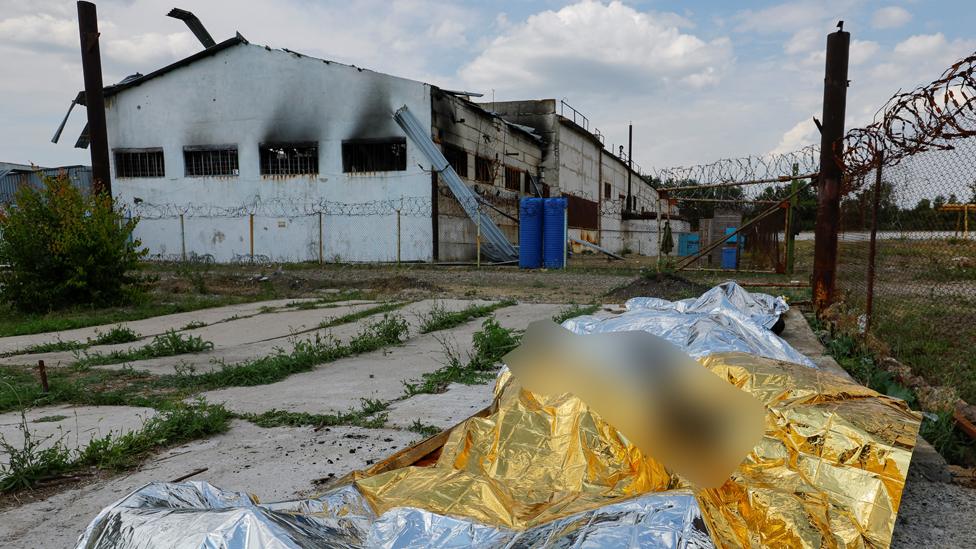
The scene in Olenivka, some of which is too graphic to show
What exactly happened in an attack on a prison camp in occupied eastern Ukraine is unclear. Both Russia and Ukraine say dozens of Ukrainian prisoners of war were killed. But that is about the only thing they agree on.
Russia claims the prison was hit by Ukrainian rockets supplied by the US and that eight of its prison staff were injured.
Unverified Russian video footage from the scene in Olenivka shows badly burned bodies amid the wreckage of what looks like sleeping quarters.
But Ukraine tells a different story: that the prison was destroyed by Russia to destroy evidence of torture of prisoners of war. It says the footage was not the aftermath of a strike, but rather arson following a mass murder.
A 'frank' and very rare conversation
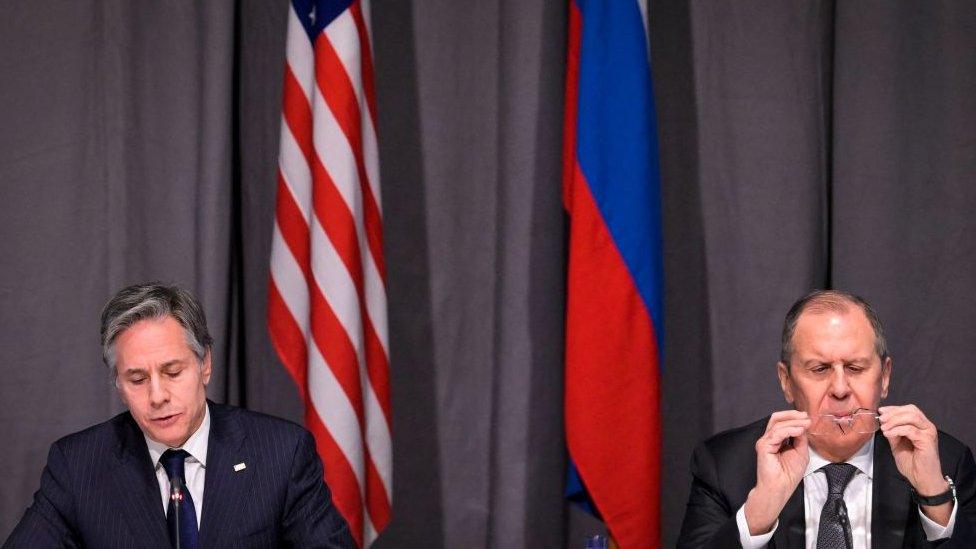
The pair pictured at a summit in Stockholm last year
Also on Friday, US Secretary of State Antony Blinken and Russian Foreign Minister Sergei Lavrov spoke for the first time since Russia launched its invasion.
Mr Blinken said their conversation was "frank and direct". He told Russia's top diplomat the world would never accept the annexation of Ukrainian territory.
But Mr Lavrov said Russia would work towards achieving all the goals of what it calls its "special military operation".
Mr Blinken said the release of former marine Paul Whelan and basketball star Brittney Griner was discussed and he urged the Kremlin to accept America's offer of a prisoner swap.
The US secretary of state had unusually gone public this week with the proposal. But Mr Lavrov gave little hint a deal was imminent, saying the US should return to "discreet diplomacy".
Hopes for much-needed food exports
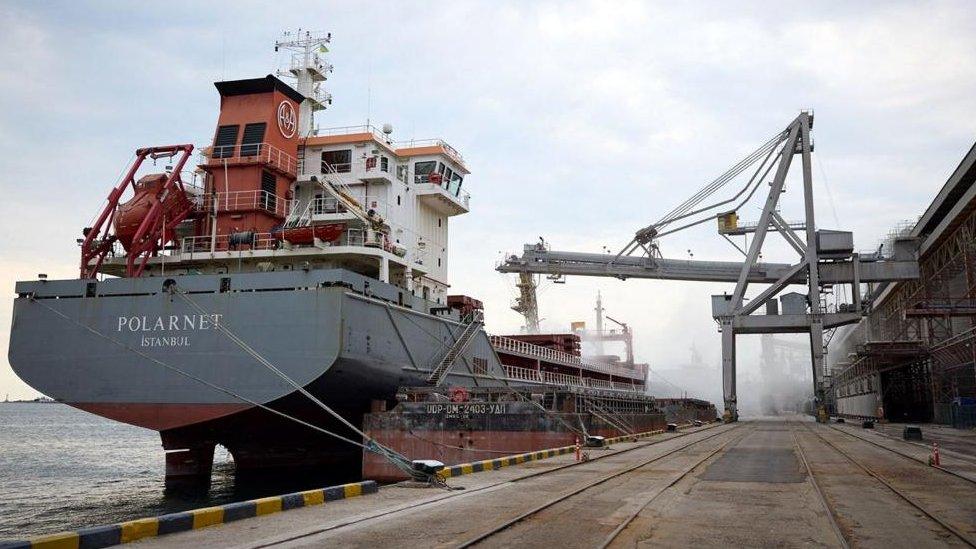
The Polarnet was loaded with grain at Chornomorsk on Friday
There has been some good news from Ukraine, with the country prepped and ready to ship its first grain exports by sea since the war began - and potentially save lives where food is scarce.
Ukraine was often described as the "breadbasket of Europe" for its rich soil and powerful agricultural sector which fed millions around the word.
But the war made it impossible for Ukraine to ship its produce to where it was needed, raising fears of rising prices in some countries and outright food shortages in some African nations.
A deal with Russia, backed by the UN, hopes to see 600,000 tonnes of grain leave port - but ships are still awaiting the all-clear to weigh anchor.
Reprieve for war crimes convict
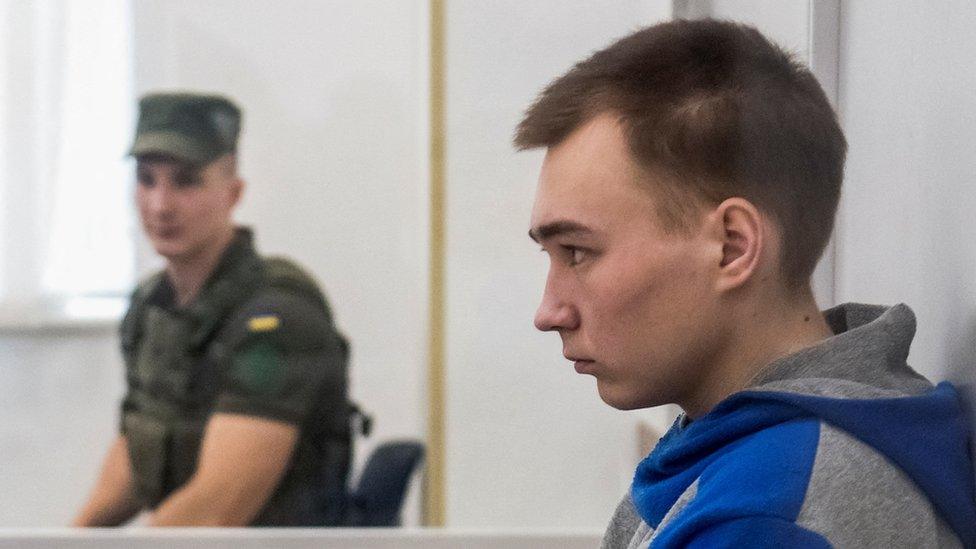
Vadym Shishimarin was initially sentenced to life in prison
You may remember the case of Vadym Shishimarin - a 21-year-old soldier who, as the first Russian soldier in Ukrainian custody convicted of war crimes, was handed a life sentence in May.
He confessed to killing a 62-year-old civilian cyclist under orders from another soldier as they tried to flee back to Russia in February.
Now, a court of appeal has commuted his sentence to 15 years in prison rather than life.
His case is not necessarily over - the more lenient sentence may also be appealed.
Ukraine's shadow army behind enemy lines
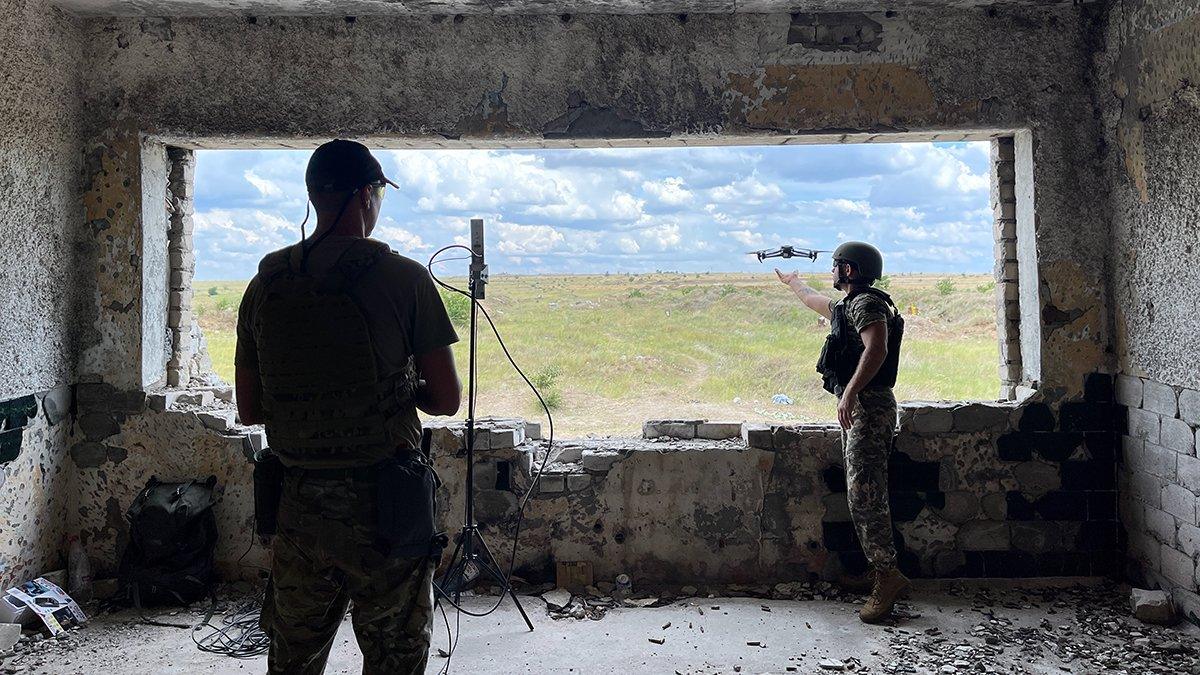
Ukrainian resistance fighters use drones to spot targets for the military
This war has seen PR and propaganda on all sides. But some fighters do so in secret away from the front lines - a shadowy network of informants and agents behind enemy lines.
In Kherson, the first major city to fall to Russia in the war, the BBC's Sarah Rainsford meets masked men in a secret location - the resistance movement fighting occupation.
"The resistance is not one group, it's total resistance," one of them tells her. Ukrainian agents there track Russian troop movements and pass them on to the Ukrainian counter-offensive.
"Of course they're afraid," the resistance fighter says. "But serving their country is more important."
But the grassroots movement has another side, too - as suspected collaborators with the Russians are tracked and threatened.
UK welcomes 100,000 refugees
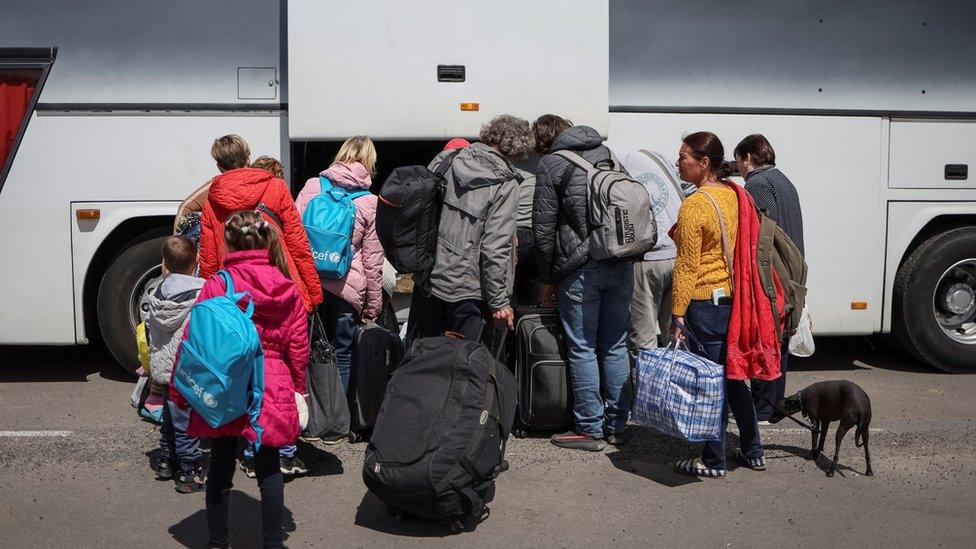
Ukrainians in Zaporizhzhia pictured fleeing the war by bus
At the outbreak of war, the UK - like many nations around the world - vowed to welcome Ukrainian refugees fleeing the conflict.
On Thursday, the government said more than 100,000 had arrived under its visa schemes.
But that is only 62% of those who have been handed visas, and about half of the 200,000 applications that have been made.
While the schemes are widely praised, some campaigners have criticised delays caused by bureaucracy.
- Published29 July 2022

- Published29 July 2022
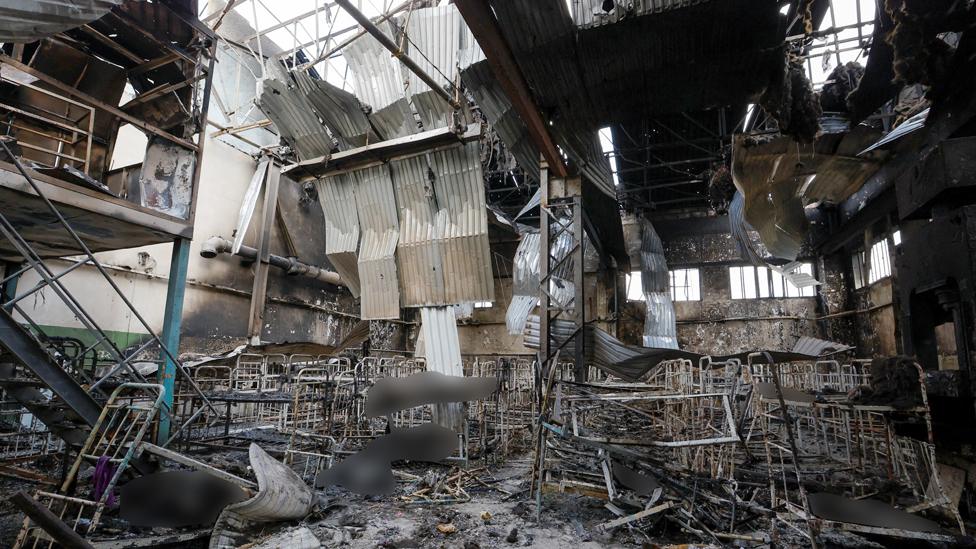
- Published29 July 2022
